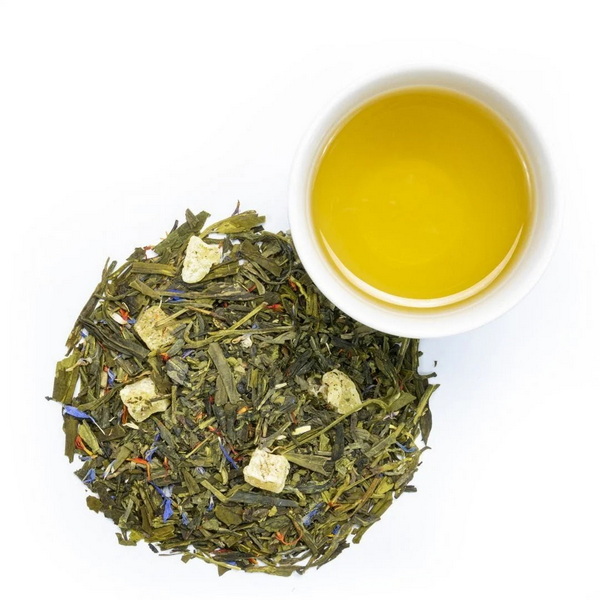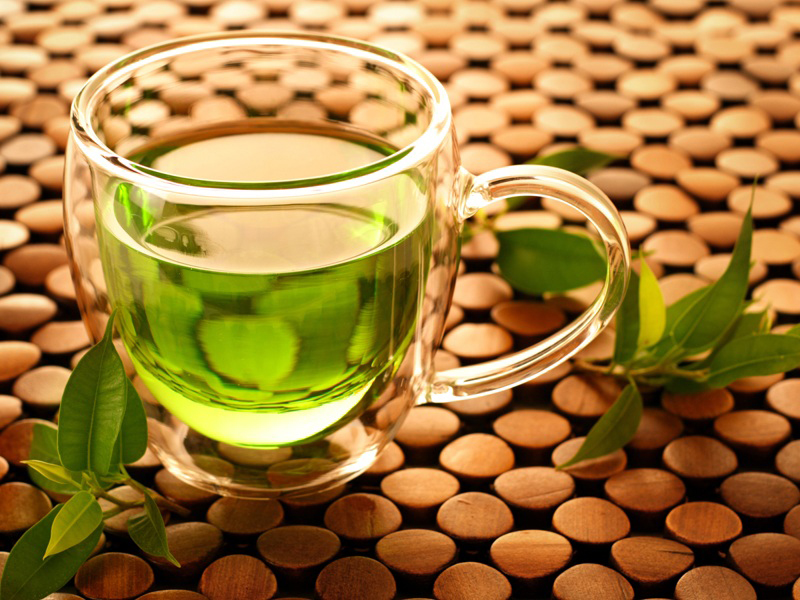Content Menu
● Understanding Green Tea Extract
>> Forms of Green Tea Extract
● Health Benefits of Green Tea Extract
● Recommended Dosage
>> Factors Influencing Dosage
● Safety and Side Effects
● How to Take Green Tea Extract
● Consulting Healthcare Providers
● Potential Drug Interactions
● Choosing Quality Green Tea Extract
● Lifestyle Considerations
● Personal Experiences with Green Tea Extract
● Conclusion
● FAQ
>> 1. What is green tea extract?
>> 2. How much green tea extract should I take daily?
>> 3. Are there any side effects associated with green tea extract?
>> 4. Can I take green tea extract if I am pregnant?
>> 5. Is it safe to consume green tea extract long-term?
● Citations:
Green tea extract (GTE) is a concentrated form of green tea that has gained popularity for its potential health benefits. Derived from the leaves of the Camellia sinensis plant, it is rich in antioxidants, particularly catechins, which are believed to provide various health advantages. However, understanding the appropriate dosage is crucial for maximizing benefits while minimizing risks.

Understanding Green Tea Extract
Green tea extract contains several bioactive compounds, with epigallocatechin gallate (EGCG) being the most studied. This powerful antioxidant has been linked to numerous health benefits, including improved heart health, weight management, and enhanced cognitive function. GTE can be consumed in various forms: capsules, powders, or liquids.
Forms of Green Tea Extract
- Capsules: These are convenient and provide a standardized dose of green tea extract. They are often preferred for their ease of use and lack of taste.
- Powders: Green tea powder, such as matcha, can be mixed into smoothies or baked goods. This form provides a more versatile way to incorporate green tea into your diet.
- Liquid Extracts: These can be added to beverages or taken directly. Liquid extracts may offer faster absorption but can have a stronger taste.
Health Benefits of Green Tea Extract
1. Antioxidant Properties: GTE is known for its high antioxidant content, which helps combat oxidative stress in the body. Antioxidants neutralize free radicals, reducing cellular damage and lowering the risk of chronic diseases.
2. Weight Management: Studies have shown that GTE may aid in weight loss by increasing fat oxidation and improving metabolic rate. A meta-analysis indicated that green tea extract can help reduce body weight and waist circumference.
3. Heart Health: Regular consumption of GTE has been associated with lower blood pressure and improved cholesterol levels. It may reduce LDL cholesterol and triglycerides while increasing HDL cholesterol levels.
4. Cognitive Function: Some research suggests that GTE may enhance memory and cognitive performance. The combination of caffeine and L-theanine in green tea has been shown to improve attention and reaction time.
5. Skin Health: The antioxidants in GTE can help protect the skin from damage caused by UV rays and pollution, potentially reducing signs of aging and improving skin elasticity.
6. Diabetes Management: Some studies suggest that green tea extract may improve insulin sensitivity and reduce blood sugar levels, making it beneficial for individuals with type 2 diabetes.
7. Cancer Prevention: Preliminary research indicates that the compounds in green tea may inhibit the growth of cancer cells and reduce the risk of certain types of cancer, including breast and prostate cancer.
8. Anti-inflammatory Effects: The anti-inflammatory properties of EGCG may help reduce inflammation in the body, which is linked to various chronic diseases.
Recommended Dosage
The optimal dosage of green tea extract varies based on individual health goals and tolerance levels. Here are some general guidelines:
- General Use: A common recommendation is to take between 250 mg to 500 mg of GTE per day.
- Weight Loss: For those targeting weight loss, studies suggest that doses ranging from 500 mg to 1,000 mg may be effective.
- Cognitive Enhancement: A daily intake of around 336 mg of catechins has shown positive effects on cognitive function.
- Heart Health: Doses between 379 mg to 714 mg have been linked to improved cardiovascular outcomes.
- Diabetes Control: A dosage between 300 mg to 600 mg per day may help manage blood sugar levels effectively.
Factors Influencing Dosage
Several factors can influence how much green tea extract an individual should take:
- Body Weight: Heavier individuals may require higher doses for the same effects compared to lighter individuals.
- Health Status: Those with specific health conditions may need tailored dosages based on their medical history.
- Sensitivity to Caffeine: Individuals sensitive to caffeine should consider lower doses or caffeine-free options.
Safety and Side Effects
While green tea extract is generally safe for most people when taken within recommended doses, excessive consumption can lead to adverse effects such as:
- Liver Damage: High doses (≥800 mg/day) have been associated with liver toxicity. Symptoms may include nausea, abdominal pain, and jaundice.
- Caffeine Sensitivity: GTE contains caffeine, which can cause side effects like insomnia, anxiety, and increased heart rate in sensitive individuals.
- Gastrointestinal Issues: Some users report digestive discomfort when taking GTE on an empty stomach. Taking it with food can help mitigate these effects.
- Interactions with Medications: Green tea extract can interact with certain medications, including blood thinners and medications for heart conditions. Always consult a healthcare provider if you are on medication.

How to Take Green Tea Extract
To minimize side effects and enhance absorption:
- With Food: It is advisable to take green tea extract with meals to reduce the risk of gastrointestinal issues.
- Hydration: Ensure adequate hydration when taking supplements containing caffeine to avoid dehydration symptoms like headaches or dizziness.
- Timing Matters: For those using GTE for energy or cognitive enhancement, taking it earlier in the day may prevent sleep disturbances due to its caffeine content.
Consulting Healthcare Providers
Before starting any new supplement regimen, especially if you have underlying health conditions or are taking medications, consult a healthcare provider. This is particularly important for individuals with liver issues or those on anticoagulant medications due to potential interactions.
Potential Drug Interactions
Green tea extract can interact with several medications:
- Anticoagulants/Antiplatelet Drugs: GTE may enhance the effects of these medications, increasing bleeding risk.
- Beta-blockers: The caffeine in green tea might counteract the effectiveness of beta-blockers used for hypertension or heart conditions.
- Stimulants: Combining GTE with other stimulants can increase heart rate and blood pressure excessively.
Choosing Quality Green Tea Extract
When selecting a green tea extract supplement:
- Look for products that provide standardized amounts of EGCG or total catechins.
- Choose reputable brands that undergo third-party testing for purity and potency to ensure you are getting a high-quality product.
Lifestyle Considerations
Incorporating green tea extract into your routine should be part of a broader approach to health:
- Maintain a balanced diet rich in fruits, vegetables, whole grains, lean proteins, and healthy fats.
- Engage in regular physical activity; combining exercise with GTE supplementation may enhance weight loss efforts and overall health benefits.
Personal Experiences with Green Tea Extract
Many users report positive experiences when incorporating green tea extract into their daily routine:
- Improved energy levels without jitters compared to other caffeinated beverages.
- Enhanced focus during work or study sessions due to its cognitive benefits.
- Positive changes in body composition when combined with a healthy diet and exercise regimen.
Conclusion
Green tea extract can be a beneficial addition to your health regimen when taken in appropriate amounts. With a recommended daily intake typically ranging from 250 mg to 1,000 mg depending on individual health goals, it is essential to monitor your body's response and consult with a healthcare professional if you experience any adverse effects.
In summary:
- The optimal dosage varies based on health goals.
- Excessive intake can lead to serious side effects.
- Always consult a healthcare provider before starting supplementation.
By understanding how much green tea extract you can safely consume and its potential benefits, you can make informed decisions about incorporating it into your lifestyle for better health outcomes.

FAQ
1. What is green tea extract?
Green tea extract is a concentrated form of green tea derived from the leaves of the Camellia sinensis plant, rich in antioxidants like EGCG that offer various health benefits.
2. How much green tea extract should I take daily?
The recommended dosage ranges from 250 mg to 500 mg per day for general use; for weight loss or specific health goals, doses may increase up to 1,000 mg.
3. Are there any side effects associated with green tea extract?
Yes, potential side effects include liver damage at high doses, caffeine sensitivity symptoms (like anxiety), and gastrointestinal discomfort if taken on an empty stomach.
4. Can I take green tea extract if I am pregnant?
It's best to consult with a healthcare provider before taking green tea extract during pregnancy due to its caffeine content and potential interactions with medications.
5. Is it safe to consume green tea extract long-term?
Moderate intake (up to two years) appears safe for most people; however, long-term high doses should be monitored due to potential liver toxicity risks.
Citations:
[1] https://www.webmd.com/vitamins/ai/ingredientmono-960/green-tea
[2] https://www.elo.health/articles/green-tea-extract-supplements/
[3] https://www.alamy.com/stock-photo/green-tea-extract.html
[4] https://www.youtube.com/watch?v=fkASB21-xrQ
[5] https://www.zhounutrition.com/blogs/the-greatness-files/green-tea-extract-q-a
[6] https://health.clevelandclinic.org/green-tea-extract-a-better-way-to-boost-energy-or-not
[7] https://www.healthline.com/nutrition/10-benefits-of-green-tea-extract
[8] https://www.youtube.com/watch?v=A7tjlpYdUGU
[9] http://www.greenskybio.com/blog5/best-answers-to-7-key-questions-about-green-tea-extract.html
[10] https://www.youtube.com/watch?v=eMuE16vLV_s
[11] https://blog.invitehealth.com/green-tea-our-most-common-questions/
[12] https://www.urmc.rochester.edu/encyclopedia/content?contenttypeid=19&contentid=greenteaextract
[13] https://www.medicalnewstoday.com/articles/269538
[14] https://www.medicalnewstoday.com/articles/269538
[15] https://www.canada.ca/en/health-canada/services/food-nutrition/public-involvement-partnerships/notice-modification-list-permitted-supplemental-ingredients-permit-use-green-tea-extract-supplemental-ingredient-foods/document.html
[16] https://www.healthline.com/nutrition/how-much-green-tea-per-day
[17] https://consensus.app/questions/much-green-take-daily/
[18] https://www.drugs.com/npp/green-tea.html
[19] https://examine.com/supplements/green-tea-extract/
[20] https://pmc.ncbi.nlm.nih.gov/articles/PMC7009618/
[21] https://pubmed.ncbi.nlm.nih.gov/29580974/
[22] https://www.healthline.com/nutrition/10-benefits-of-green-tea-extract
[23] https://www.istockphoto.com/de/bot-wall?returnUrl=%2Fde%2Fphotos%2Fgreen-tea-extract
[24] https://www.webmd.com/vitamins/ai/ingredientmono-960/green-tea
[25] https://www.shutterstock.com/search/green-tea-extract
[26] https://www.vecteezy.com/free-videos/green-tea-extract
[27] https://askthescientists.com/green-tea-extract/






























